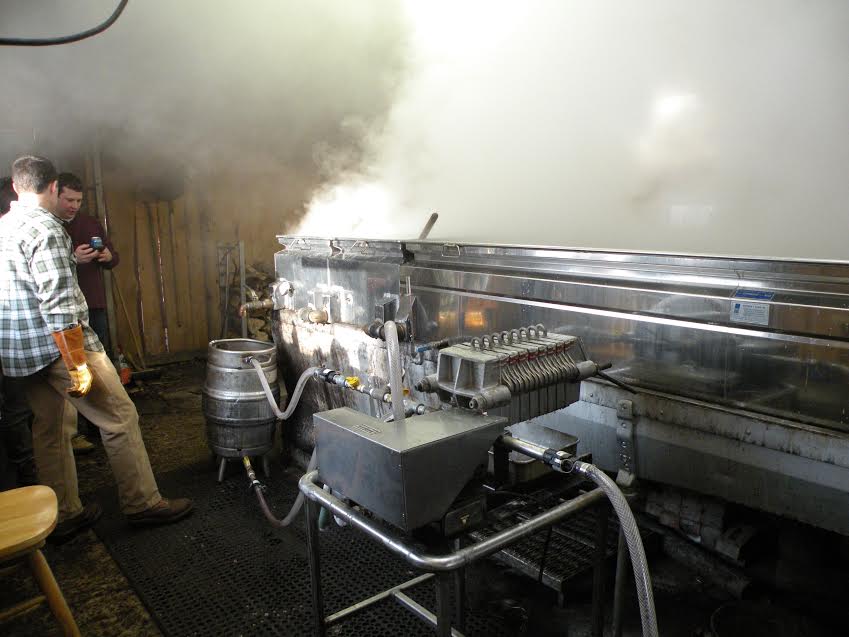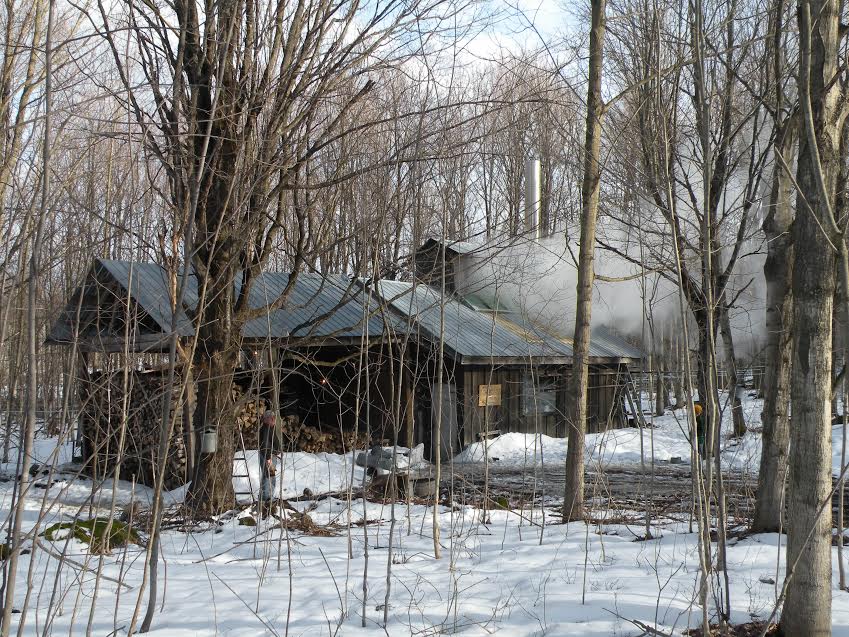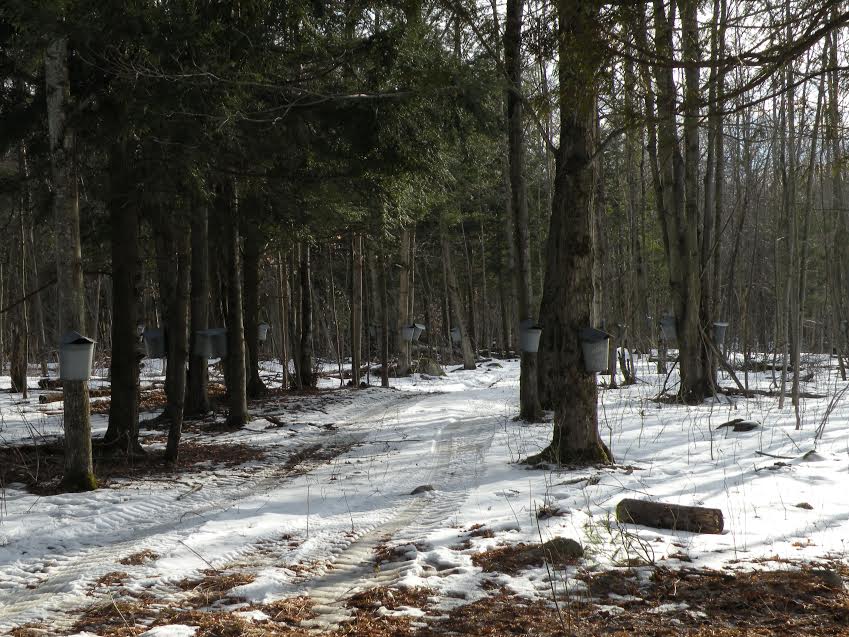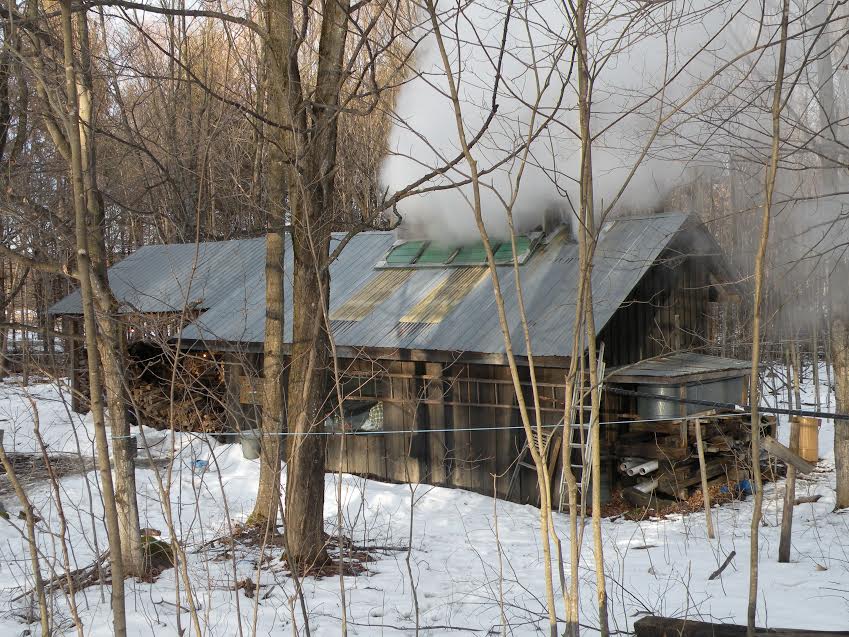My name is Dan Huntley. I am the 6th generation to live and manage what has become Huntley Farms. The 1st generation was born in 1791, descended from Canada in 1816, and has the first recorded deed to our current property in 1835. The farm house we live in today was built in 1835.
Most of my information comes from generation 4 (grandparents) and 5 (parents). In the early generations it was common for grandparents and parents to live together. I grew up in a house of 6 kids, parents and grandparents. Today, after our three children have just all left the nest, it is just my wife Chris and I – part of the original farm house is now a Bed and Breakfast.
My Father and Grandfather would tell stories of going to the barn early mornings with lanterns and milking the cows by hand. The stories of the most interest to me were during the depression years, this was a time in our Northern NY region prior to electricity and today’s modern conveniences. Survival for most farm homesteads was living self-sufficient by living off the land. Little income came from cows, pigs, and eggs from chickens. Additional income came from knitting wear and maple syrup. Most farms in this region of the Adirondack foothills had a dairy and woods for maple production. During this time all maple sap was collected by bucket and transported by horses. The evaporation arches were fired with wood and syrup was stored and distributed in metal cans.
After the depression years with the introduction of electricity and modern machinery, the landscape and farming practices changed drastically. Many family farm maple operations have been abandoned due to these changed farming practices, as well as on the Huntley farm, near the years of 1950.
My father’s desire to bring maple production back to the farm annual practices happened in 1976. At this time we had a neighbor, Court Ostrander, who had a wood fired evaporator (3’ x 12’) in his abandoned maple sugar shack. My father had a horse at this time that Court wanted. The two negotiated an acceptable barter and a handshake was made to confirm the deal. No papers or lawyers, just a handshake contract. My father acquired the 3×12 maple syrup evaporator and Court acquired the horse of his choice. The barter practice with a handshake was a common practice in early times around the depression. For those who lived near that time the availability of money was an always an issue. There is story from my grandfather during the depression, who with no available money, paid one month’s mortgage on the farm with a barter of two pigs to the bank president.
Our current maple syrup operations have been in place every year since the 1976 deal that my father made with our neighbor Court Ostrander. The equipment has been upgraded and the sugar house has been remodeled, but a majority of the trees tapped for maple sap are the same. While most of today’s modern maple operations have converted to oil fired evaporators, our equipment still evaporates off wood fire. We are very conscious of managing our maple woods surrounding for a long maple syrup producing future. All of our wood for our maple evaporation comes from wood culling practices required for long time stands of maple hardwoods.
The maple syrup season and operation is a unique set of conditions dominate in the Northeast and extends into parts of the Midwest – which is the only region maple trees grow. This unique set of conditions starts for our Huntley Farms in early February. At this time, weather conditions are freezing temperatures day and night with a cover of snow ranging from inches to feet. The days are noticeable longer in sunlight and temperatures do occasionally rise above 30 during the day. It is definitely a very dormant set of winter conditions with signs of warming. During this month we evaluate what we’re dealt with from normal weather and the impact to trees and roads in our woods. Clearing fallen limbs and opening up roads in the snow is the start of the maple season. Working in complete dead forest conditions will soon be energized by the thawing and freezing weather that delivers a pure crop of maple sap. The one month of March and early April will present an average number of 15 total days of boiling this sap into maple syrup. The rush of managing the timing of weather conditions delivered during this time is full of excitement and very long hours of conversion of boiling maple sap into maple syrup. The beginning of April ends the season. The transformation of this time, from late February with the dead of a snow covered winter into the sights and sounds of spring, take place right before your eyes. Snow melting, hibernating animals waking, migrating birds return, frogs singing, owls nesting, tree buds developing, and the increasing temperature from the radiant heat of our planet’s sun is a very cool set of conditions to physically experience and work in. The love for this “out of doors” physical experience is one our family is privileged to manage.
We are extremely excited that our youngest son, Dillon and his new bride Kate as of August last year, are content being labeled as the 7th Huntley generation to live and manage the farm legacy. Dillon, a 2011 graduate of St. Lawrence University, will apply his modern concepts and head butting as I did with my father approximately 30 years ago after graduating from Cornell University.
We do invite guests to our Bed and Breakfast during this maple season. For interest in experiencing a snapshot of this time, please contact Chris or myself. We also will ship maple products to those interested as well. Our farm contact is 315-386-2336. We hope you enjoy one of nature’s purest products where ever it is manufactured.





Hi, I really enjoyed this. I was looking for you on facebook and found this instead. I searched for Chris Huntley but did not find you on facebook. I love the pictures and history in this piece and so happy that Dillon will be the 7th generation on the farm. Take care and so glad to see you the other day. gail